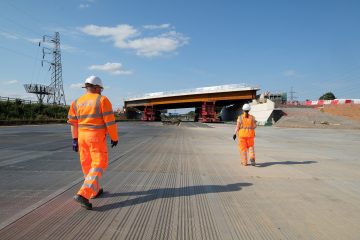By Ed Butcher, Head of Business Development, HS1 Ltd.
As I look on in awe at the massive endeavour HS2 embarks on, I cannot help but wonder what lessons HS1 might have learnt along the way, that could help HS2 deliver more when trains start rolling. On reflection, my key tip from what I have learnt from selling HS1 capacity, is be bolder at construction and future-proof for growth and opportunities.
HS1 and our partners has transformed the lives of hundreds of thousands of people. From those now employed in new highly-skilled and highly-paid jobs created by French companies based in London to the thousands of families that can afford a home with a garden because of improved journey times and employment opportunities unlocked by our high-speed connection.
The route has become the transport backbone of the South East delivering £427m of economic benefit last year. However, just ten years after opening we are already reaching capacity constraints on domestic high-speed services that might have been addressed by bolder thinking at the outset – most notably on the needs for domestic rolling stock. With roughly 11% passenger growth a year, HS1 services have been wildly successful and helped change the economic growth trajectory of Kent. Working with government and Southeastern, we are thankfully devising solutions that will ensure these rolling stock constraints are overcome.
Scope creep is the blight of all major infrastructure schemes, threatening viability, and fundability. Therefore, I respect the discipline of keeping a tight lid on costs and a single-minded vision to make a project the scale of HS2 happen. But as we have learnt, single-mindedness can come at the cost of future development and opportunities.
In the case of HS1, residents of Folkestone and Dover now live (more…)

